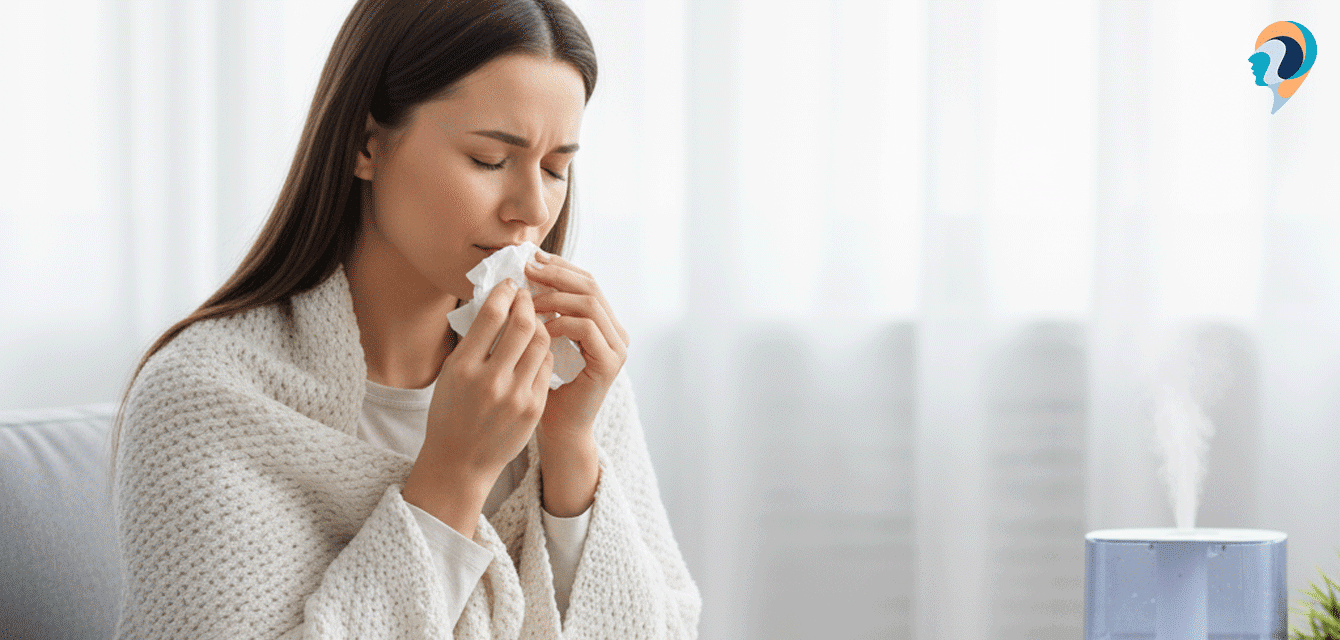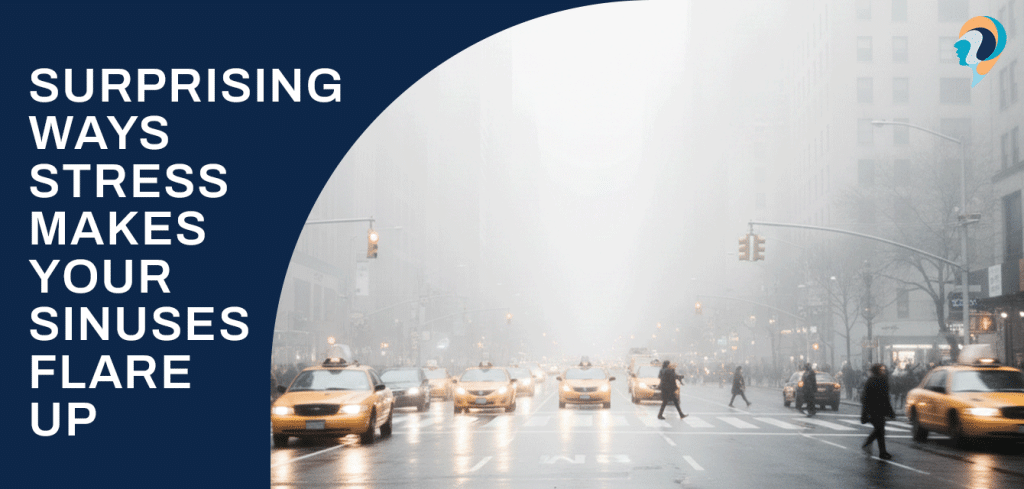

Sinus infection symptoms often include facial pressure, a blocked nose, and headaches that disrupt daily life. Stress can make these symptoms worse and slow recovery. In New Zealand, many people find that poor sleep, low energy, and a tired immune system lead to repeat infections. Managing stress helps the body cope and reduces the chance of flare-ups.
This blog explains how stress control can reduce sinus infection symptoms in NZ and support quicker recovery. Work pressure, lack of rest, and stale indoor air can all make symptoms worse. By keeping both mind and body in balance, you can prevent repeat sinus problems and protect long-term health.
Stress changes how the immune system works and can raise inflammation in the sinuses. When stress stays high, hormones affect blood vessels in the nose and make swelling worse. This leads to more pressure, blocked passages, and headaches.
The body’s stress response can keep sinus tissues swollen, especially in cold or humid weather. People under constant stress often notice that sinus infection symptoms in NZ last longer and return more often.
Tension also limits blood flow, which slows healing. Poor circulation keeps mucus trapped and can spread infection to nearby areas. Reducing stress early helps restore balance and lowers how often pressure occurs.
Knowing the early signs of a long-running sinus problem can stop it getting worse. A blocked nose, facial pressure, and pain near the eyes or cheeks point to swelling that needs care. Ignoring these signs allows infection to deepen and causes more fatigue.
Some people get a constant sinus headache without congestion, which feels like a migraine or tension headache. It can feel heavy and worse when bending forward or lying down. Track how long and how often it happens to decide if you need a check-up.
Without care, sinus infections can cause breathing issues and frequent colds. Mucus colour may change, sleep gets worse, and focus drops due to pain. Early help makes recovery smoother and prevents chronic problems.
Sinus issues often come from a mix of environment, seasons, and lifestyle. Knowing the causes in adults helps prevent symptoms and supports long-term sinus health.

High workloads, worry, and poor rest trigger stress that worsens sinus swelling. The hormone cortisol rises with stress and can weaken immune control, which keeps inflammation high.
Busy city air, dust, and fumes add physical stress. Breathing these in while under emotional strain makes sinus membranes sore and reactive. This mix of stressors lowers the body’s ability to fight infection.
Lack of sleep adds to the problem and slows repair. Without enough rest, swelling lasts longer and symptoms stick around. Keeping stress in check helps recovery and keeps symptoms manageable.
Managing stress through simple daily habits can help ease sinus infection symptoms in NZ. Small lifestyle changes support the immune system and promote faster recovery.
A steady sleep routine helps the body repair and control inflammation. Good sleep also prevents fatigue and reduces congestion.
Engaging in light exercise such as walking, yoga, or stretching promotes better blood flow and eases muscle tension. Improved circulation supports clearer nasal passages and faster recovery. Activities like these also enhance overall well-being and help reduce stress.
Eat a variety of whole foods with vitamin C-rich fruit and veg. Limit caffeine and highly processed foods to keep energy stable and reduce stress load.
Simple relaxation such as deep breathing, short meditations, or quiet breaks helps lower cortisol. With less stress, the immune system can focus on healing and swelling can settle.
Regular relaxation eases congestion by calming the body and improving airflow. Over time, this can reduce how strong and how often symptoms occur.
Drink enough water to thin mucus while you rest. Hydration helps clear the nose and supports the body’s natural clean-up.
See a clinician if symptoms continue despite stress control. Ongoing pain, facial swelling, or frequent headaches can point to a deeper infection. Waiting too long may cause complications.
If you get constant sinus headaches without congestion, ask for an assessment to confirm the cause. A proper check finds the reason and guides a suitable plan.
Repeated infections or pressure around the eyes also need expert advice. These signs may point to blockages or allergies that need treatment. Early care protects breathing and sleep quality.
Medical specialists can provide personalised treatment options for ongoing sinus concerns. An ENT specialist identifies the underlying cause, which may involve allergies, infections, or structural nasal issues. Once diagnosed, treatment plans focus on reducing inflammation and preventing further infection episodes.
Those searching for the best ENT specialist for sinus problems in Auckland can find a range of professionals who provide thorough assessments. Such experts often use advanced imaging and allergy tests to pinpoint persistent causes. Their guidance ensures patients receive both short-term relief and long-term prevention strategies.
Professional care may include medication, nasal rinses, or minor procedures that restore airflow. When stress contributes to repeated infections, a combined approach involving both medical and mental support offers the best outcomes. This balance encourages healthy recovery and lowers the chance of chronic sinus infections recurring.
Managing emotional strain supports recovery and prevents recurring sinus infections. People who make consistent efforts toward balanced rest, steady routines, and positive habits often notice reduced sinus pressure and faster healing. A relaxed state of mind allows the immune system to function efficiently, maintaining natural protection against infections.Healthy management of stress levels promotes better control of sinus infection symptoms in NZ. Support from Dr. Benjamin Chan offers professional insight into managing long-lasting sinus concerns with reliable care and effective treatment. Guided medical advice can help individuals achieve lasting improvement while reducing discomfort and maintaining healthy breathing.
Common symptoms include facial pressure, a blocked nose, and headaches that disrupt daily life. Some people also notice fatigue and recurring flare-ups when recovery takes longer than expected.
Yes, stress can worsen sinus symptoms by increasing inflammation and weakening immune control. People often notice longer-lasting congestion and more pressure during stressful periods.
Yes, stress can contribute to sinus pressure by affecting blood vessels and swelling inside the nose. Headaches may feel heavier when inflammation remains high.
Improving sleep routines, gentle activity, hydration, and relaxation practices can help reduce stress load. Lower stress supports the immune system and may reduce flare-ups.
Seek review when symptoms persist despite self-care or stress control. Ongoing pain, facial swelling, or frequent headaches need assessment.